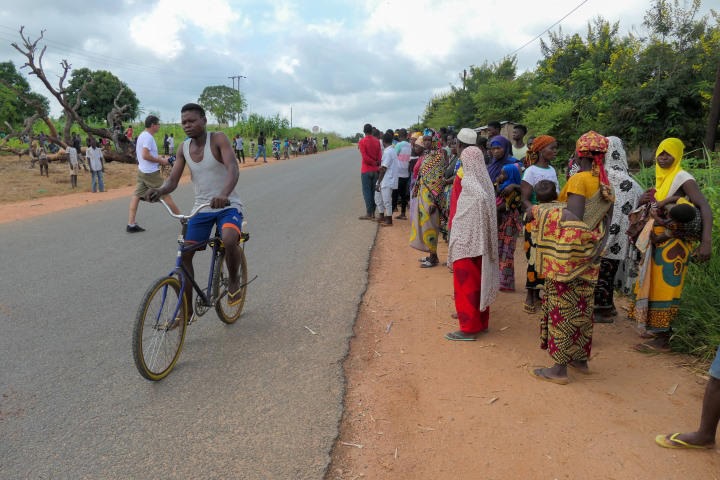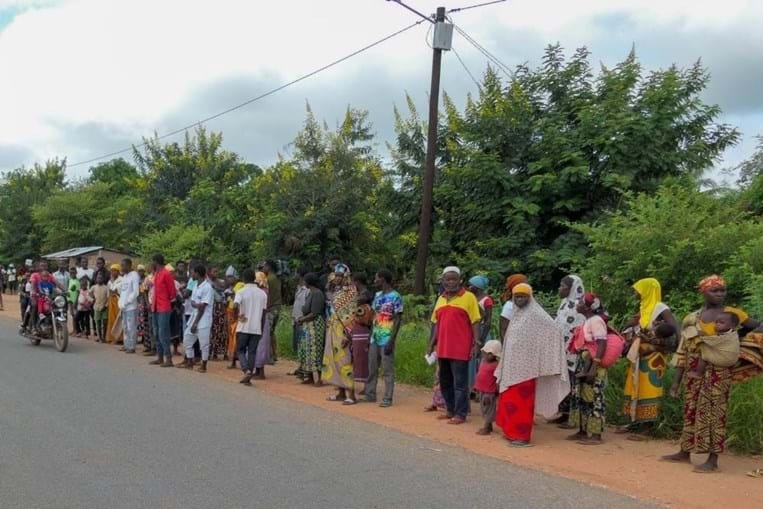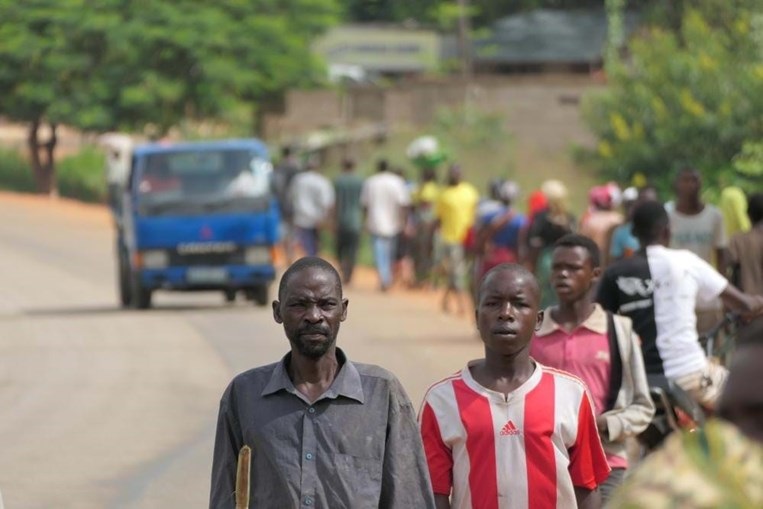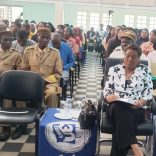Mozambique: Matola 18-year-old mpox patient 'showing improvement' as Maputo province steps up ...
Mozambique: Attacks, fear leave village of 11,000 deserted

Photo: Lusa
Mmala, a Mozambican village in Cabo Delgado, had more than 11,000 people, but two attacks by terrorists led the population to flee in recent days with children on their laps, carrying what little escaped destruction on their heads.
“First they passed through and killed two people, they passed around the village, a day passed, the next day they passed through again and killed six people and burnt down a cubicle of the hospital and the school,” Lourenço Ancuara, the village chief, told Lusa.
Faced with this, the solution has been to flee in a hurry, namely to the town of Chiùre, today the last safe haven in the neighbourhood. Even so, it’s a three-day journey on foot, through farmland and along roads, with thousands of people moving at the same time.

Mmala is located in the administrative post of Chiùre-Velho, the most affected by the terrorist attacks in Cabo Delgado province in recent days, and is 50 kilometres from Pemba, the provincial capital, a journey that takes more than three hours by car, on a road that is constantly under threat of further attacks.
Lourenço Ancuara, who has just arrived in the town of Chiùre, says that the village has been deserted: “Nobody, we’ve all abandoned it (…) I have 11,014 inhabitants there. And there’s nobody there. They abandoned us. Nobody brought anything. We left just like that.”
They arrive on foot, by bicycle, some children of a few years still asleep after nights of fear.
The attacks over the last week have left the village, where everyone in the various communities is dedicated to farming, empty.
For now, there is still no hope of a return and the village chief is only asking for help for the thousands who have fled Mmala for other settlements: “We still don’t have any support, I don’t know if they’ll give it to us”.
In Mujipala, a community in the village of Mmala, lived Sousa Américo, a 40-year-old farmer. After three days of walking with his five children and hundreds of others, he arrived in Chiùre.
“They didn’t kill anyone there. They just burnt down the 47 houses. It’s all empty (…) We arrived here with nothing. We’re suffering from hunger and asking for support,” he says, still at the entrance to Chiùre, before setting off for one of the three temporary resettlement camps in schools which, according to local authority figures, are currently hosting 13,000 displaced people in the town, as well as those seeking shelter in the homes of friends and family.
“Nobody is there anymore. Everything is empty,” he describes, fearful about the future while asking for support.
“The people here have nothing. We’re almost on the high seas,” Sousa Américo laments.

Mustafa Emílio, 45, has also just arrived in Chiùre, which, before this wave of displaced people, had 75,000 inhabitants. He arrived hoping to find refuge in a relative’s house.
“We couldn’t bring anything. We left with nothing,” he says.
At least he says he’s reassured that he managed to bring his wife, children and sisters with him on a journey of more than three fearful days.
He just doesn’t understand why: “I don’t know what these criminals need. They only make us suffer.
After several months of a relative return to normality in the districts affected by armed violence, the province of Cabo Delgado in northern Mozambique has seen new movements and attacks by rebel groups for some weeks now, causing new waves of displaced people.
On Thursday, President Filipe Nyusi said on a visit to Cabo Delgado that the new rebel incursions are the result of attempts by armed groups to recruit new members, considering that last month, the province saw “a lot of movement of terrorists”.
“They are no longer able to recruit in this province for many reasons, the awareness [of the population], and so they want to see if they can bring other members here (…) They wanted to take children and young people and they weren’t happy,” declared Filipe Nyusi, moments after leading a government meeting in Pemba, the provincial capital.
Mozambique’s prime minister, Adriano Maleiane, acknowledged the need for additional support for Cabo Delgado in the face of the flight of dozens of people due to the new attacks in that province, a situation that is creating “food problems”.
The new wave of armed violence in Cabo Delgado province dominated the speeches at the resumption of parliamentary sessions today, with the opposition demanding that the executive find mechanisms for dialogue with the insurgents.
The extremist group Islamic State (IS) has claimed several attacks and fatalities in recent weeks, especially in the south of Cabo Delgado province.
The province has been facing attacks claimed by IS for six years, which has led to a military response since July 2021, with support from Rwanda and the Southern African Development Community (SADC), liberating districts near gas projects.












Leave a Reply
Be the First to Comment!
You must be logged in to post a comment.
You must be logged in to post a comment.